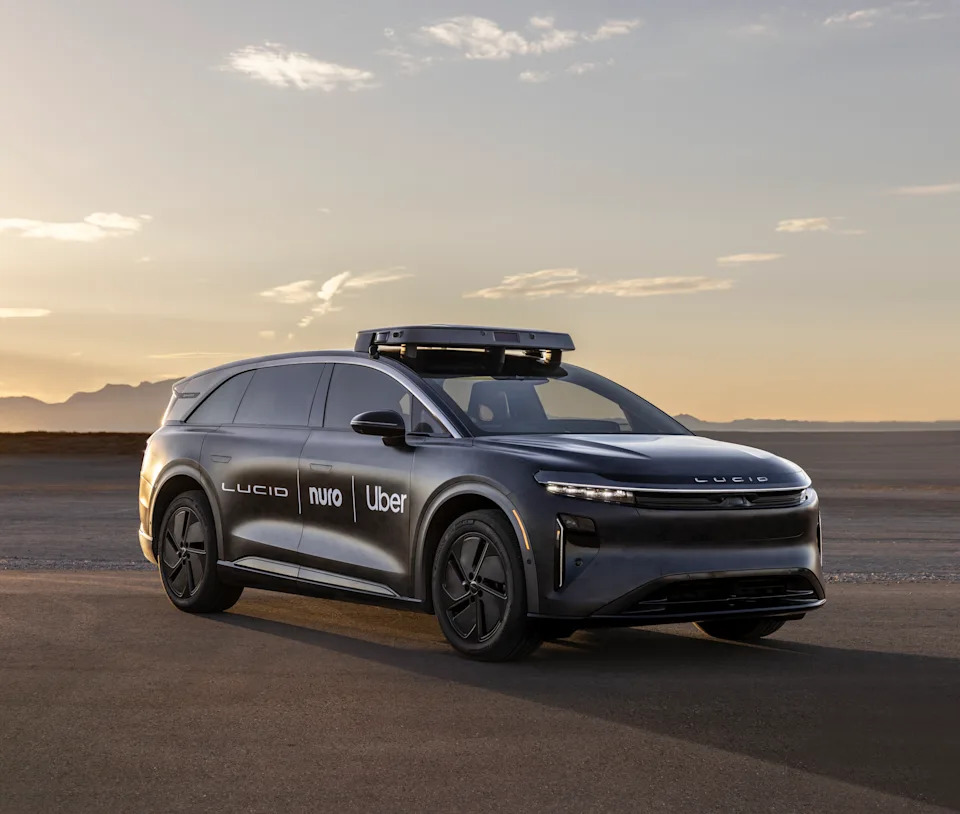
Uber, Lucid partner on new robotaxi service, taking on Waymo and Tesla
Key Points
- Uber, Lucid, and Nuro have partnered to launch a next-generation premium global robotaxi program exclusively for the Uber platform, featuring the Lucid Gravity SUV equipped with Nuro’s Level 4 autonomous software.
- Uber plans to deploy 20,000 or more Lucid EVs over the next six years, with the service expected to launch in a major US city in 2025, and will invest $300 million in Lucid and a similar amount in Nuro.
- Lucid’s stock surged nearly 30% following the announcement, reflecting strong market confidence in the partnership and the company’s autonomous vehicle potential.
- This initiative marks Uber’s return to robotaxi services after halting its own operations following a 2018 accident, and it follows competition from Waymo and Tesla in the autonomous driving space.
Summary
Uber has teamed up with electric vehicle manufacturer Lucid and autonomous tech firm Nuro to introduce a premium global robotaxi program exclusively for the Uber platform. Announced recently, the initiative will integrate Nuro’s Level 4 autonomous software into Lucid’s Gravity SUV, with plans to deploy over 20,000 vehicles in the next six years, starting in a major US city in 2025. Uber will invest $300 million in Lucid and a comparable sum in Nuro, while the vehicles will be managed by Uber or third-party fleet partners. Lucid’s stock jumped nearly 30% on the news, bolstered by the company’s strong Q2 deliveries and ambitious 2025 production goals for its Air sedans and Gravity SUVs. This partnership signifies Uber’s re-entry into the robotaxi market after a hiatus following a 2018 accident, positioning it against competitors like Waymo and Tesla, who are also advancing in autonomous driving. The collaboration is further contextualized by Saudi Arabia’s Public Investment Fund’s significant stakes in both Uber and Lucid, potentially influencing the strategic alliance. A prototype is already under testing at Nuro’s Las Vegas facility, marking a significant step toward realizing the vision of accessible, safe autonomous transport.
yahoo
July 17, 2025
Stocks


